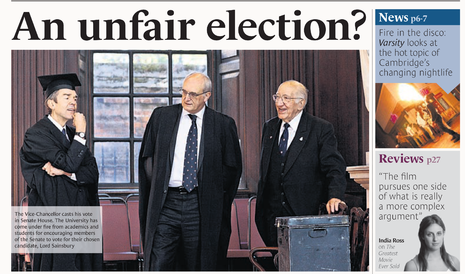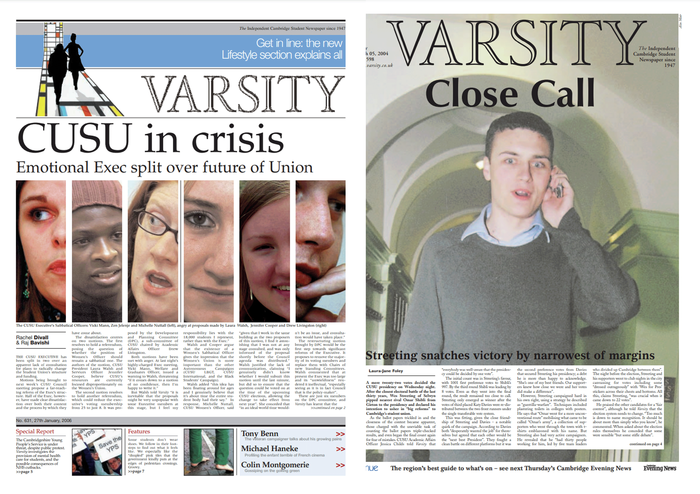Vintage Varsity: The Taming of the Chancellor
Cambridge’s first contested election for Chancellor in 164 years; featuring Brian Blessed, Lord Sainsbury and a local grocer.

2011. For the first time in 164 years, the ceremonial position of Chancellor of the University of Cambridge was up for a contested election. Following the resignation of Prince Phillip as chancellor, David Sainsbury (politician and former chairman of the eponymous supermarket) was selected as the official candidate by the University higher-ups, expecting an easy victory. However, a local grocer – unhappy with the expansion of Sainsbury’s to Mill Road – protested by entering the race, opening the curtains on both the bizarre and corrupt nature of University elections.
Once it made the news that nominations weren’t technically closed, a Facebook group of alumni put forward Shakespearean actor Brian Blessed – without his knowledge – and was delighted when he embraced the opportunity. His campaign website is still available online, where he highlighted his background as a state-educated coal miner’s son, and put improving access at the heart of his campaign. Eventually being described by Varsity as a “runaway favourite”, he came alarmingly close to the official candidate nominated by the University.
"The election increasingly highlighted everything ridiculous about Cambridge"
Despite Blessed’s earnestness – or, perhaps, because of it – the election increasingly highlighted everything ridiculous about Cambridge. Technically any Cantab with an MA (‘Cambridge Master of Arts’) could vote, as long as they were wearing their gowns; in reality, the election was swung by modern capitalist donors: voting staff were encouraged to vote for the University’s official candidate in departmental emails that noted his status as the University’s largest single benefactor. Varsity questioned whether this was “an unfair election?” – and it remains a worthwhile question.
Despite the switch to a proportional Single Transferable Vote (STV) system for the election, there was only a 2.5% turnout: 5558 voted out of an estimated voter base of 200,000. We can assume these were mainly coached staff, as although alumni had the right to vote, they were not informed unless they discovered an obscure University-run webpage. So, despite the democratic facade of hustings and an election, the fact that Sainsbury won with 52% of first-round votes is hardly a surprise. Our chancellor was always going to be the Lord Sainsbury of Turville: a wealthy benefactor, chosen by a committee of University higher-ups to attract more wealthy benefactors, rather than someone who might have better represented the interests of all members of the University.
 News / Hundreds of Cambridge academics demand vote on fate of vet course20 February 2026
News / Hundreds of Cambridge academics demand vote on fate of vet course20 February 2026 News / University Council rescinds University Centre membership20 February 2026
News / University Council rescinds University Centre membership20 February 2026 News / Judge Business School advisor resigns over Epstein and Andrew links18 February 2026
News / Judge Business School advisor resigns over Epstein and Andrew links18 February 2026 News / Petition demands University reverse decision on vegan menu20 February 2026
News / Petition demands University reverse decision on vegan menu20 February 2026 News / Caius students fail to pass Pride flag proposal20 February 2026
News / Caius students fail to pass Pride flag proposal20 February 2026










